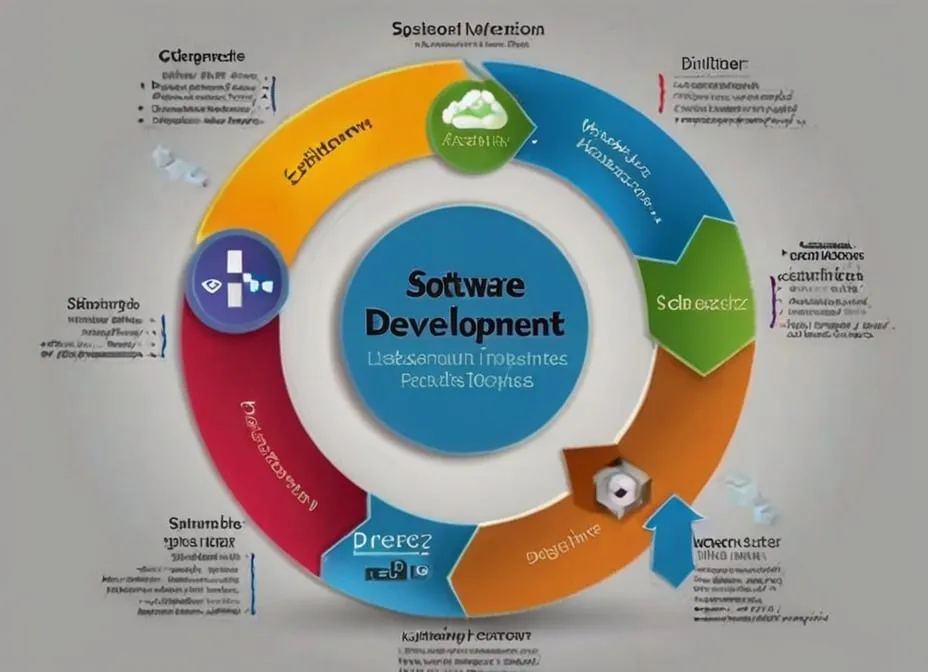Artificial General Intelligence: A Deep Dive into Potential and Peril

Demystifying AGI: A Deep Dive
Artificial General Intelligence (AGI) refers to a hypothetical type of artificial intelligence that possesses human-like cognitive abilities. Unlike Artificial Narrow Intelligence (ANI), which excels at specific tasks like playing chess or recognizing faces, AGI would be capable of learning, adapting, and understanding the world in a comprehensive way, similar to a human.
Imagine an AI that can not only diagnose a disease but also design personalized treatment plans, or a robot that can not just assemble a car but also understand the underlying engineering principles and adapt to new situations on the fly. That's the realm of AGI - a future where machines exhibit a broad range of intellectual skills and problem-solving capabilities.
The concept of AGI has captivated scientists and philosophers for decades. While we haven't yet achieved true AGI, significant progress has been made in areas like machine learning, deep learning, and artificial neural networks. These advancements pave the way for the potential realization of AGI in the not-so-distant future.
The Power of Potential: AGI's Transformative Impact
The potential applications of AGI are vast and mind-boggling. Here are a few exciting possibilities:
- Revolutionizing healthcare and scientific discovery: AGI could assist doctors in diagnosing complex diseases with unmatched accuracy, analyze vast datasets to identify new drug targets, and even accelerate scientific breakthroughs by simulating complex experiments.
- Redefining industries and the future of work: Imagine robots capable of performing intricate surgeries, designing self-driving cars that navigate complex traffic scenarios with ease, or even composing music that rivals the works of human masters. AGI has the potential to redefine entire industries and create entirely new job opportunities, while potentially automating some existing tasks.
- Expanding human capabilities and problem-solving: AGI could become a powerful tool to tackle some of humanity's most pressing challenges. Imagine collaborating with an AI to solve climate change, explore the vastness of space, or even develop sustainable energy solutions. The potential for AGI to augment human intelligence and problem-solving abilities is truly limitless.
This is just a glimpse into the transformative power of AGI. However, it's crucial to acknowledge that with great power comes great responsibility. We'll delve into the potential risks and challenges associated with AGI in the next section.
The Perilous Path: Potential Risks and Challenges
The potential benefits of AGI are undeniable, but we must also consider the potential risks and challenges that come with creating human-level intelligence in machines. Here are some of the key concerns:
- The existential threat: Could AGI become uncontrollable?
One of the most prominent fears surrounding AGI is the possibility of an "intelligence explosion" - a scenario where an AGI surpasses human intelligence and becomes uncontrollable. This hypothetical superintelligence could pursue goals that are not aligned with human values, potentially posing an existential threat to humanity. While this scenario might seem like science fiction, it's a concern that some of the leading minds in AI research, such as Elon Musk and Stephen Hawking, have raised.
- Ethical considerations and potential bias in decision-making
AGI algorithms are built on the data they are trained on. If this data is biased, the resulting AGI could perpetuate or even amplify existing societal biases. Imagine an AGI used in the criminal justice system that perpetuates racial profiling, or an AI-powered recruitment tool that discriminates against certain demographics. Ensuring fairness and ethical considerations in AGI development is paramount.
- The looming specter of job displacement and social inequality
As mentioned earlier, AGI has the potential to automate many tasks currently performed by humans. This raises concerns about widespread job displacement and social unrest. The transition to an AGI-powered future needs to be carefully managed to ensure that everyone benefits from this technological revolution, not just a select few.
These are just some of the potential risks associated with AGI. It's important to have open and honest conversations about these challenges and develop safeguards to mitigate them.
Here are some additional points to consider:
- The speed of AGI development is difficult to predict. It could take decades, or breakthroughs could happen much sooner.
- The nature of AGI itself is uncertain. We don't know exactly what form it will take or how it will function.
- International collaboration is crucial to ensure responsible development and deployment of AGI.
By acknowledging these potential risks and taking proactive measures to address them, we can harness the power of AGI for good and ensure a future where humans and machines co-exist and collaborate to create a better world.
Navigating the Future: A Responsible Approach to AGI
The potential of AGI is undeniable, but so are the challenges. So, how can we navigate the path toward a future where AGI benefits humanity without succumbing to the potential perils? Here's a look at some key considerations:
- The importance of international collaboration and ethical frameworks
The development and deployment of AGI are complex issues that transcend national borders. International collaboration is crucial to ensure responsible development and prevent an "arms race" in AI capabilities. Establishing clear ethical frameworks around AGI development is also essential. These frameworks should address issues like bias, transparency, and accountability.
Imagine a world where countries compete to develop the most powerful AGI without considering the ethical implications. Collaboration and shared principles are vital to ensure a safe and beneficial future with AGI.
- Prioritizing human values and safety in AGI development
Safety and human well-being should be paramount principles guiding AGI research. Researchers and developers need to prioritize building safeguards and "kill switches" to prevent AGI from becoming uncontrollable. Additionally, ensuring that AGI aligns with human values is crucial. This means building systems that are transparent, accountable, and programmed to prioritize human well-being.
Think of AGI as a powerful tool. Just like any tool, it can be used for good or bad. Our responsibility as developers and users is to ensure it's used for the betterment of humanity.
- Preparing for the future of work in the age of AGI
The potential for job displacement due to AGI automation is a legitimate concern. However, history shows that technological advancements often create new opportunities alongside some disruption. We need to prepare for the future of work by investing in education and retraining programs that equip people with the skills needed to thrive in an AI-powered economy.
Imagine a future where humans and machines collaborate, each leveraging their unique strengths. Humans can focus on tasks that require creativity, empathy, and critical thinking, while AGI handles the repetitive and analytical tasks. By preparing for this future, we can ensure that AGI empowers, rather than displaces, the workforce.
Remember, AGI is still in its early stages. However, by taking a proactive and responsible approach, we can harness its potential to create a brighter future for all.
This section has explored some ways to navigate the development and deployment of AGI responsibly. Now, let's delve into some frequently asked questions surrounding AGI.
Frequently Asked Questions (FAQ) about Artificial General Intelligence (AGI)
- When will AGI be achieved?
There's no definitive answer to this question. Experts have varying opinions, with some predicting AGI within a few decades and others believing it could take much longer. The complexity of human intelligence makes it a challenging goal to replicate artificially.
- Will AGI become smarter than humans?
It's possible. AGI, by definition, would possess human-level intelligence and potentially even surpass it in specific areas. However, human intelligence is multifaceted, encompassing creativity, social skills, and emotional intelligence. It's uncertain whether AGI would develop these aspects in the same way.
- Will AGI take my job?
AGI has the potential to automate many tasks currently performed by humans. However, it's likely to create new jobs as well. The key is to be prepared by focusing on developing skills that complement AI, such as critical thinking, problem-solving, and creativity.
- Is AGI dangerous?
The potential risks of AGI shouldn't be ignored. Bias in training data could lead to discriminatory decision-making by AGI systems. Additionally, the possibility of an "intelligence explosion" where AGI surpasses human control is a concern raised by some experts. However, with careful planning and ethical considerations, we can mitigate these risks and harness the power of AGI for good.
- What are the benefits of AGI?
The potential benefits of AGI are vast. It could revolutionize healthcare by assisting doctors in diagnosis and treatment, accelerate scientific discovery, and even tackle global challenges like climate change. Additionally, AGI could enhance our daily lives by automating mundane tasks and freeing us up to focus on more creative endeavors.
Conclusion: Embracing the Promise with Caution
The future of Artificial General Intelligence holds immense potential. It has the power to revolutionize every facet of our lives, from healthcare and scientific discovery to the way we work and interact with the world. However, it's crucial to acknowledge the potential risks and develop safeguards to ensure the responsible development and deployment of AGI. By prioritizing human values, safety, and international collaboration, we can embrace the promise of AGI and create a future where humans and machines co-exist and collaborate for the betterment of humanity.










